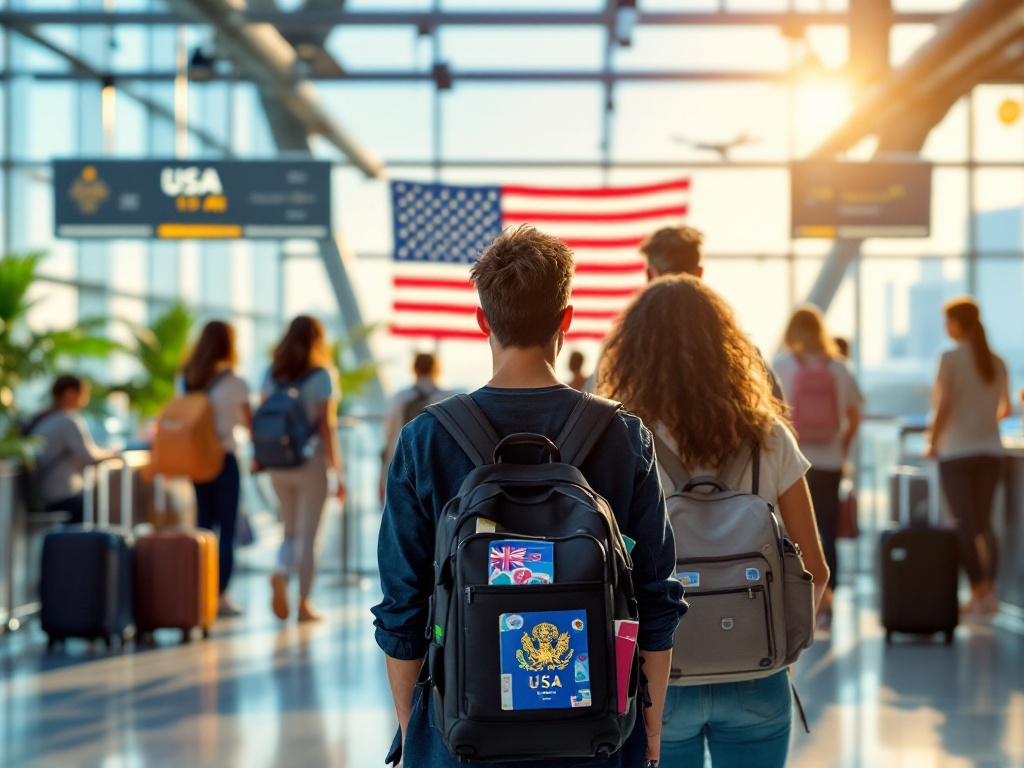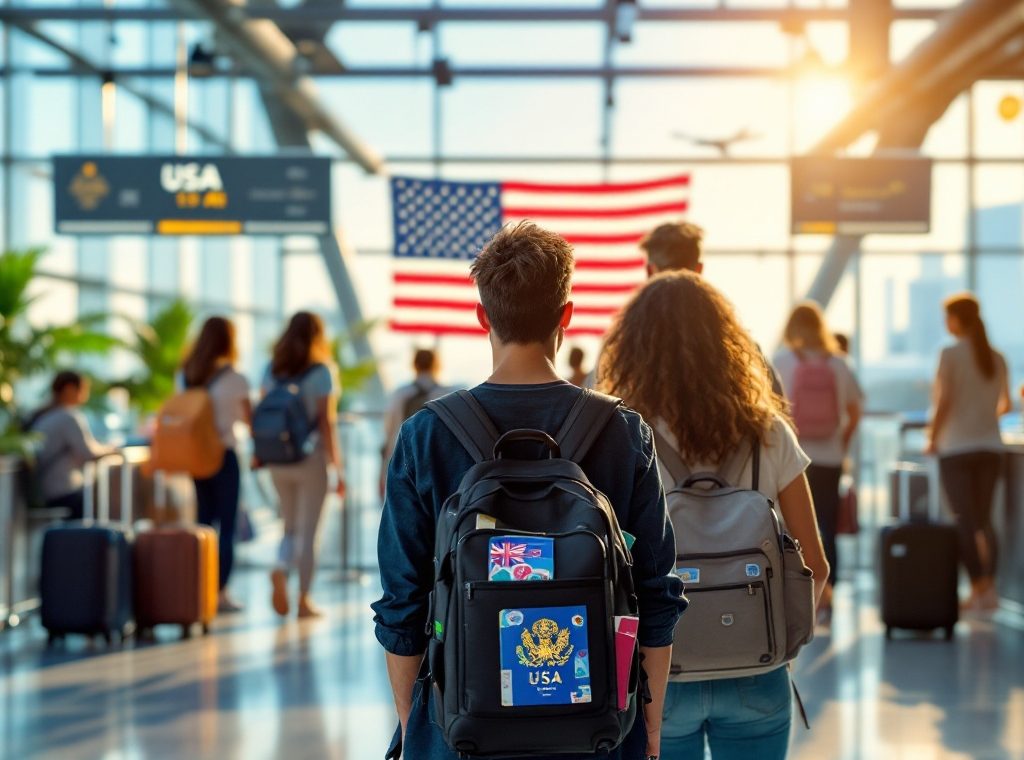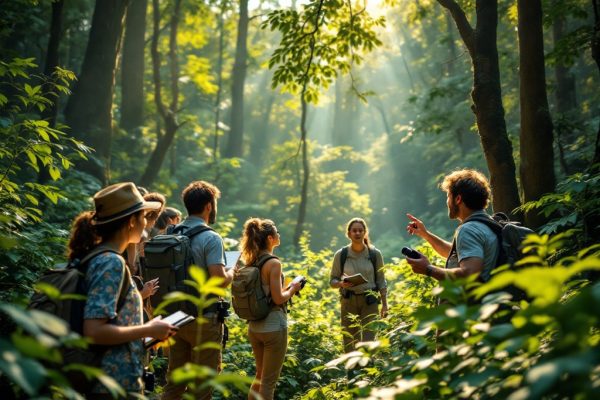What to Know Before Going to the USA
Planning a trip to the USA? Navigating entry requirements and cultural norms can be tricky. This guide provides essential information on visas, customs, healthcare, transportation, and safety, ensuring a smooth and enjoyable travel experience. Learn about ESTA requirements, customs declarations, tipping etiquette, and even how to interact with law enforcement. Prepare for your American adventure and discover key tips for a stress-free journey. Start planning your trip today!
Important information

- A valid passport, valid for six months beyond your intended stay, is required.
- Visas and/or ESTA authorization may be required depending on your nationality.
- Check current health and vaccination requirements before you travel.
- Declare all items brought into the US, including gifts and currency over $10,000.
- Obtain travel insurance to cover unexpected medical costs and other emergencies.
Understanding Entry and Exit Requirements
Entering the US requires visitors to understand a few key rules. Non-US citizens typically need a visa depending on their nationality. A valid passport, extending six months past the intended stay, is mandatory for everyone. Upon arrival, visitors declare their intended length of stay. Some nationalities also require an Electronic System for Travel Authorization (ESTA). Before traveling, it’s essential to check the latest health and vaccination requirements.
Check visa requirements. Non-US citizens typically need a visa depending on their nationality.
Ensure passport validity. A valid passport, extending six months past the intended stay, is mandatory for everyone.
Declare intended length of stay. Upon arrival, visitors declare their intended length of stay.
Obtain ESTA if required. Some nationalities also require an Electronic System for Travel Authorization (ESTA).
Verify health and vaccination requirements. Before traveling, it’s essential to check the latest health and vaccination requirements.
Visa and Passport Essentials
Please provide the text you would like me to refine. I will improve its clarity, engagement, and readability, using HTML formatting strategically to enhance the user experience.
Customs Declaration and Prohibited Items
When entering the US, declare everything you bring, including gifts, food, and personal belongings. Certain items, such as specific fruits, vegetables, and meats, face restrictions. Any currency exceeding $10,000 must also be declared. Understanding these regulations prevents potential problems like fines or confiscation. Retain your receipts as they can prove valuable during customs inspections. While most travelers have an $800 duty-free allowance, restrictions still apply. Therefore, declaring everything ensures a smooth and trouble-free customs experience.
Travel Planning and Regional Exploration
Planning your trip to the USA thoughtfully ensures a more fulfilling experience. Focusing on one region at a time allows you to immerse yourself in the local culture at a relaxed pace, avoiding the stress of traversing the entire country. Booking flights and accommodation in advance, particularly during popular travel periods, guarantees availability and often better rates. For example, reserving a flight from London to New York six months prior can result in significant savings. Consider regional attractions when selecting your destination, but remember that flexibility is key to a truly enjoyable trip.
Choosing a Region to Explore
What truly captivates
Flight and Accommodation Reservations
Booking in advance is key to securing the best travel deals and ensuring availability, especially during peak seasons. Planning ahead often leads to significant savings and a wider selection of flights and accommodations. It also eliminates the stress of last-minute booking struggles.
Travel Insurance and Health Insurance Considerations
Traveling to the US? Ensure peace of mind by safeguarding your health and finances. A comprehensive travel insurance policy is essential. It protects you from unexpected medical costs and other emergencies, covering both medical evacuations and hospital stays. Supplemental health insurance offers additional financial security, especially given the high cost of US healthcare. While emergency care is generally accessible, preparedness is crucial.
Before you go:
- Carry essential medications, especially if you have pre-existing conditions.
- Keep a readily available list of allergies and pre-existing medical conditions.
- Research recommended vaccinations based on your origin. These may include measles, mumps, rubella, and COVID-19.
Financial protection:
- Secure a comprehensive travel insurance policy. It will cover unforeseen medical expenses and other emergencies, including medical evacuations and hospital stays.
- Consider supplemental health insurance for added financial security in the face of high US healthcare costs.
Understanding Cultural Norms and Social Etiquette
While American culture is diverse, some common courtesies are observed throughout the country. Politeness and good manners are valued, along with respecting personal space. Casual conversations are common, but it’s best to avoid discussing politics or religion with strangers. First names are generally used, even upon initially meeting someone. Respecting diverse cultures and backgrounds is a key aspect of American society.
Tipping is customary, typically 15-20% in restaurants and bars, and also for taxi drivers and other service providers. Punctuality is important in the US, as it demonstrates respect.
American Tipping Culture
Tipping is customary in the US. It’s a gesture of appreciation for good service and supplements workers’ income. For services like dining, taxis, and hotels, 15-20% is typical. Large restaurant parties may find the gratuity already included.
Public Behavior and Personal Space
In the United States, good manners and respecting personal space are essential. Maintain a comfortable distance from others, particularly in lines or on public transportation. Common courtesy also involves queuing properly; avoid cutting in line.
Refrain from offensive language and keep your voice at a reasonable level, as loud or disruptive behavior is generally discouraged. Politeness fosters positive social interactions.
Health and Safety Precautions
Plan your vaccinations. Check the recommended vaccinations based on your origin country, common ones include measles, mumps, rubella, and COVID-19.
Obtain travel insurance. It’s crucial for covering unexpected health issues abroad.
Verify healthcare access. Confirm access to healthcare services at your destination and check for any health advisories or disease outbreaks around your travel dates.
Avoid animal contact. Minimize your risk of illness by avoiding contact with animals.
Vaccinations and Health Precautions
Consult your doctor or a travel clinic to discuss recommended vaccinations before traveling to the US. Routine immunizations like MMR and flu shots are advised. Additional vaccines, such as Hepatitis A or B, might be necessary depending on your travel history and planned activities. Be aware that COVID-19 vaccination proof may be required. Check current travel advisories for the latest information.
Safety and Security Measures
Stay aware of your surroundings to ensure your safety during travels. Secure your belongings and avoid showing off valuable items. Be cautious when using ATMs. Research your destinations beforehand.Familiarize yourself with local laws and customs. If law enforcement stops you, stay in your vehicle and follow their instructions. In emergencies, dial 911 for police, fire, or medical help.
Crime Awareness and Safety Precautions
Stay aware of your surroundings to enhance your safety. Avoid walking alone after dark, especially in poorly lit or secluded areas. If confronted by a robber, hand over your valuables. This is usually the wisest course of action. Report any criminal activity to the local authorities immediately. Secure your possessions and be especially watchful in crowded places to deter pickpockets. Pay close attention to your pockets and bags. Reliable transportation, especially at night, provides an added layer of security.
Be Aware of Your Surroundings. Observe the people and environment around you.
Avoid Walking Alone After Dark. This is particularly important in poorly lit or secluded areas.
Prioritize Your Safety Over Possessions. If confronted by a robber, hand over your valuables.
Report Criminal Activity. Contact local authorities immediately after any incident.
Secure Your Belongings. Be mindful of your possessions, especially in crowded areas, to deter pickpockets.
Use Reliable Transportation. Opt for safe and reliable transportation, particularly at night.
Interactions with Police and Officials
If you encounter law enforcement, remain calm and courteous. Cooperate with their requests and provide necessary identification, such as your passport or visa. Never attempt to bribe an officer. If you believe your rights are being violated, calmly express your concerns, but avoid arguing. Discreetly note the officer’s badge number and name for future reference. Afterward, seek legal counsel.
Transportation and Mobility
Public transportation in the US varies greatly depending on location. Larger cities, such as New York, Chicago, and San Francisco, offer extensive subway and bus systems. However, smaller cities and rural areas often have limited public transportation, making car ownership almost essential. Ridesharing services like Uber and Lyft are widely available in cities, offering a convenient alternative to taxis. Car rentals are also readily accessible, but remember to check local driving laws and ensure you have sufficient insurance. A valid driver’s license is mandatory, and understanding traffic regulations and parking rules will make driving easier. For traveling between cities, you have several choices. Domestic flights are generally the fastest option for long distances, while trains and buses provide alternatives. Road trips offer scenic views and greater flexibility.
Getting Around Cities
- Public Transportation: Major cities have extensive networks, but smaller areas often lack options.
- Ridesharing: Uber and Lyft are popular alternatives to taxis in urban areas.
Intercity Travel
- Flights: Generally the quickest for long distances.
- Trains and Buses: Slower but can be more cost-effective.
- Road Trips: Offer scenic routes and flexibility.
Car Rentals
Easily accessible, but be sure to have a valid driver’s license, understand local driving laws, and have adequate insurance.
Public Transit Availability
Traveling within the United States offers various transportation options. Public transport, including buses, subways, and taxis, can be a convenient choice, but availability depends on the city and region. Research local options before your trip. For example, New York City has a comprehensive subway system, while smaller towns rely more on buses. Consider ride-sharing apps and car rentals as well. Planning your transportation in advance ensures a smoother trip.
Car Rental and Driving Regulations
Public transportation in the US offers a mixed bag. Major hubs like New York, Chicago, and San Francisco boast extensive networks of buses and subways. However, venturing into rural areas often requires a car. Ridesharing through Uber and Lyft has become a popular urban transport solution, readily available through their respective apps. For those considering car rentals, researching local driving laws is essential, as is having insurance and a valid driver’s license. Familiarizing yourself with traffic regulations and parking rules will also prevent unwanted fines. The best way to get around ultimately depends on your destination. Consider these factors:
Urban Travel
- Public transport: convenient and affordable in major cities,
- Ridesharing: easy access via apps,
- Car rentals: offer flexibility but require navigating city traffic and parking.
Rural Travel
- Car rentals: often necessary due to limited public transport,
- Ridesharing: availability may decrease outside of cities.














